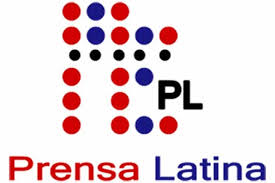

You have heard a lot about Cuba. Maybe your friends or neighbors traveled there after direct commercial flights from U.S. airports resumed in 2015. Or you could have been one of the hundreds of Venceremos Brigadistas who defied the U.S. ban on travel to see Cuba and work alongside Cubans, cutting sugar cane in 1969 and in annual solidarity brigades since then.
In the past it was very difficult to get news directly from Cuba. During the anti- Vietnam-War years Radio Havana Cuba, on shortwave radio, told war news untold by U.S. corporate media. Print issues of Granma, the newspaper of the Cuban Communist Party Central Committee, were rarely seen and were already months old when they did become accessible in the U.S.
Now you can read, listen or even watch what Cuba and Cubans — in Cuba — are doing and saying. Cuban media is now available on the internet, in English.
Where can you find it? Granma is available on the web at en.granma.cu, on Facebook at GranmaEnglish and on twitter @Granma_English.
Find the official website of Cuba’s Ministry of Foreign Affairs at minrex.gob.cu/en. The Confederation of Cuban Workers’ newspaper, Trabajadores, is available at trabajadores.cu/ingles. Other sites include:




This sampling represents only major news outlets; provinces have newspapers and radio programming, too.
In addition, in Spanish, the 1 p.m. and 8 p.m. news programs can be viewed live on Facebook at Cubatv – Canal Caribe. Other important Spanish-language programming, like Mesa Redonda, also broadcast live on Facebook.
The National Network on Cuba, the umbrella organization of U.S. solidarity organizations, is working to overcome technology issues to enable representatives from the Cuban Institute for Friendship with the Peoples to communicate through future webinars.
The U.S. economic, financial and commercial blockade against Cuba actively limits Cuba’s economy, but it also negatively impacts urban and rural communities in the U.S. Technology is now piercing the U.S. information blockade that has for nearly 60 years limited what U.S. residents learn about Cuba.
LaBash is one of five NNOC co-chairs.
Download the PDF Black and white version All out for May Day! Students defend pro-Palestine…
By Jonas, Mutual Aid Scientific Socialism To the workers and free peoples of the world: We…
Houston Mumia’s supporters gathered in Houston’s historic Emancipation Park on April 27, not just to…
El Partido Mundo Obrero (PMO/WWP) saluda el 50 aniversario de la impresionante victoria de la…
Spain’s Prime Minister Pedro Sanchez cancelled a multimillion-dollar arms deal recently to buy munitions from…
Buenos Aires, April 15, 2025 Katz is an economist, researcher at the National Scientific and…